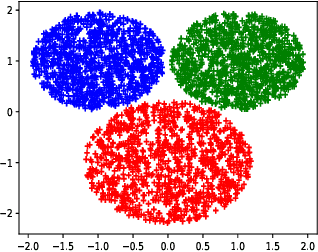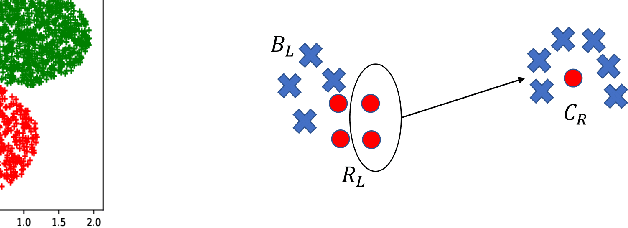Suman K. Bera
Distributional Individual Fairness in Clustering
Jun 22, 2020



Abstract:In this paper, we initiate the study of fair clustering that ensures distributional similarity among similar individuals. In response to improving fairness in machine learning, recent papers have investigated fairness in clustering algorithms and have focused on the paradigm of statistical parity/group fairness. These efforts attempt to minimize bias against some protected groups in the population. However, to the best of our knowledge, the alternative viewpoint of individual fairness, introduced by Dwork et al. (ITCS 2012) in the context of classification, has not been considered for clustering so far. Similar to Dwork et al., we adopt the individual fairness notion which mandates that similar individuals should be treated similarly for clustering problems. We use the notion of $f$-divergence as a measure of statistical similarity that significantly generalizes the ones used by Dwork et al. We introduce a framework for assigning individuals, embedded in a metric space, to probability distributions over a bounded number of cluster centers. The objective is to ensure (a) low cost of clustering in expectation and (b) individuals that are close to each other in a given fairness space are mapped to statistically similar distributions. We provide an algorithm for clustering with $p$-norm objective ($k$-center, $k$-means are special cases) and individual fairness constraints with provable approximation guarantee. We extend this framework to include both group fairness and individual fairness inside the protected groups. Finally, we observe conditions under which individual fairness implies group fairness. We present extensive experimental evidence that justifies the effectiveness of our approach.
Fair Algorithms for Clustering
Jan 08, 2019



Abstract:We study clustering problems under the lens of {\em algorithmic fairness} inspired by the disparate impact doctrine. Given a collection of points containing many {\em protected groups}, the goal is to find good clustering solutions where each cluster {\em fairly represents} each group. We allow the user to specify the parameters that define fair representation, and this flexibility makes our model significantly more general than the recent models of Chierichetti et al. (NIPS 2017) and R\"osner and Schmidt (ICALP 2018). Our main result is a simple algorithm that, for any $\ell_p$-norm including the $k$-center, $k$-median, and $k$-means objectives, transforms any clustering solution to a fair one with only a slight loss in quality.
 Add to Chrome
Add to Chrome Add to Firefox
Add to Firefox Add to Edge
Add to Edge